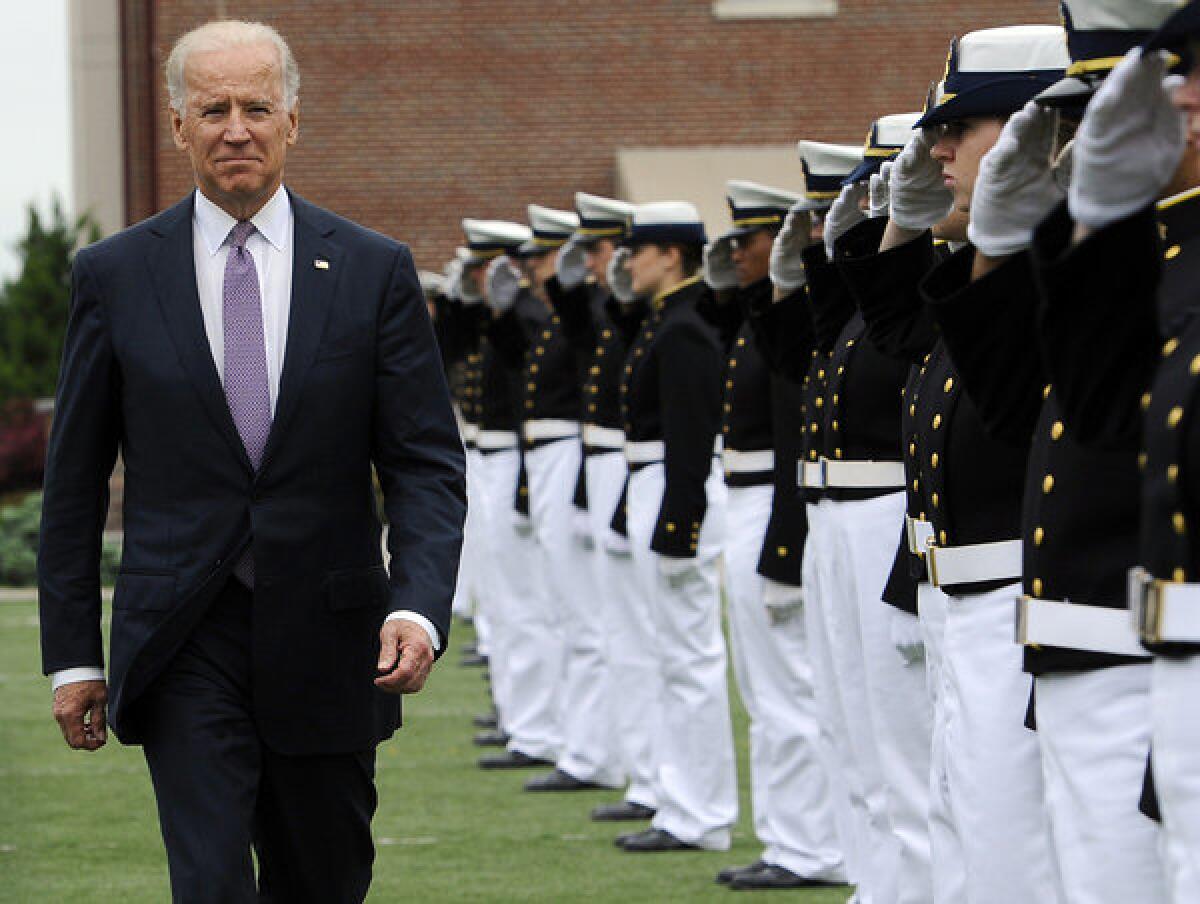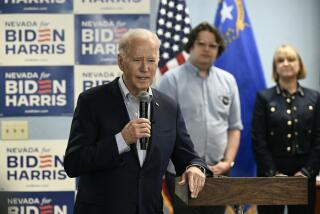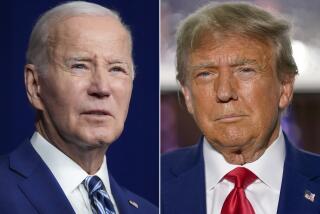The Week Ahead: Biden goes south, classic cars go continental

Monday-Friday, May 27-31 -- “Being Biden” is going on a road trip.
U.S. Vice President Joe Biden’s eclectic blogsite will follow his sweep through Colombia, Trinidad and Tobago and Brazil this week as he carries out a mission to bolster trade with Latin American allies in the midst of economic transformations.
On Monday, Biden meets with Colombian President Juan Miguel Santos in Bogota for talks expected to showcase Colombia’s impressive progress in promoting national and regional security. Only a decade ago, Colombia was beset by drug wars, rebellion and kidnappings. Now its economy is booming and the government appears to be on the brink of a peace settlement with leftist insurgents of the Revolutionary Armed Forces of Colombia, or FARC.
Tuesday takes Biden to Trinidad and Tobago, a major supplier of liquefied natural gas for the United States and a cornerstone of the Caribbean Community bloc that has become a battleground in the trade rivalry between the United States and China. (Chinese President Xi Jinping will be on Biden’s heels, visiting next week.) Leaders of other Caricom states have been invited to Port-of-Spain for lunch with Biden, Trinidad and Tobago President Anthony Carmona and Prime Minister Kamla Persad-Bissessar.
In Brazil for the rest of the week, Biden will meet with President Dilma Rousseff, speak about the emerging strategic partnership between the United States and Brazil and tour the Petrobras energy giant. Collaboration on alternative and renewable energy sources is a priority objective of the two countries. Brazil, already the eighth-largest market for U.S. goods and services, is the world leader in producing ethanol from sugar cane and manufacturing vehicles that run on biofuels.
“Latin America is back on the agenda,” said Robert McMahon, editor of the Council on Foreign Relations website. “It’s not just security issues. The United States is doing business and working toward a more expansive relationship.”
Tuesday, May 28 -- A vastly more ambitious road trip kicks off Tuesday, when 100 classic-car drivers embark on the nearly 8,000-mile Peking-to-Paris Rally 2013.
The 33-day endurance drive is only the fifth to be staged across the breadth of Asia and Europe since five intrepid adventurers set out in 1907 to demonstrate that the new motor cars edging horses and buggies off the roads were about to “make frontiers redundant.” The Bolshevik Revolution a decade later and Communist China’s sealed borders scratched successive rallies until 1997, making Italian Prince Scipione Borghese’s reportedly unsportsmanlike victory in the first race unbeatable for 90 years. Rallies loosely following the original route also were staged in 2007 and 2010.
The adventurers from dozens of countries will set off Tuesday from the Chinese capital, now known as Beijing, in vintage and classic cars ranging in age from a 1913 Ford Model T to a 1979 Soviet-made Moskvich compact. They will make their way along the 7,610-mile (12,247-kilometer) route across desert, steppe, mountains and taiga, through China, Mongolia, Russia, Ukraine, Slovakia, Austria, Switzerland and France. On each of 32 nights, they will pull up at campsites erected to offer food, drink and the tools for auto repairs.
Technology having advanced somewhat from the original rally 106 years ago, classic car enthusiasts can track their favorites on a website that goes live a day before the flag drop and plots the GPS locations of each car until it reaches the Paris finish line -- if it does -- on June 29.
ALSO:
A FARC rebel in Colombia explains why he wanted out
Brazil seeks source of rumors blamed for run on banks
Rockets hit Beirut, stirring fear of Syria conflict spillover
More to Read
Start your day right
Sign up for Essential California for news, features and recommendations from the L.A. Times and beyond in your inbox six days a week.
You may occasionally receive promotional content from the Los Angeles Times.







